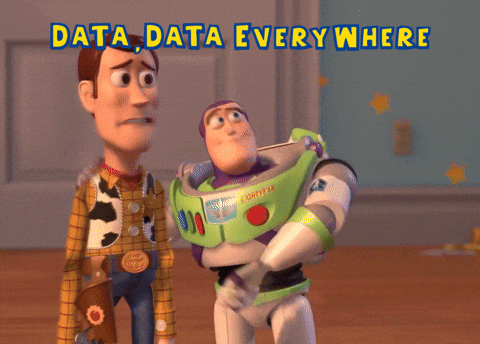
- DeepSeek, a Chinese AI startup, hit No. 1 on Apple’s Top Free Apps chart days after launching its R1 model.
- A review of the DeepSeek privacy policy reveals data storage in China and broad data-sharing practices.
- The app’s rise raises privacy questions similar to those surrounding TikTok’s data collection concerns.
When I heard that DeepSeek, a relatively small Chinese AI startup, had skyrocketed to the No. 1 spot on Apple’s Top Free Apps chart just days after launching its flagship model, R1, I was intrigued. As a communications professional by day and a moonlighting freelance creator and agency owner, my FOMO kicked in hard.

What was this juggernaut app, and how had it managed to shake up the AI world seemingly overnight?
But as the curiosity bubbled, so did the questions. Could this be another TikTok in the making, complete with a side of privacy concerns? With DeepSeek being a China-based startup, I couldn’t ignore the recent buzz about data collection and how it might be used. I had to dig deeper—so I asked ChatGPT to help me break down the DeepSeek privacy policy. Here’s what I discovered.
More from MarkAllenPatterson.com
- You Can Build a Personal Brand Without Social Media – Here’s How
- The Opposite of Imposter Syndrome: Embracing Confidence
- 5 Personal Development Activities to Try This Week
1. Who Controls Your Data in the DeepSeek Privacy Policy?
DeepSeek’s service is operated by Hangzhou DeepSeek Artificial Intelligence Co., Ltd., and Beijing DeepSeek Artificial Intelligence Co., Ltd., both based in China. This is an important factor because it means any data you share with DeepSeek is subject to Chinese laws. These laws, while strict in some ways, differ significantly from those in the United States or the European Union.
2. What Data Does DeepSeek Collect?
DeepSeek collects data in three main ways:
- Information You Provide: This includes your profile details (like email and username), chat inputs, uploaded files, and any feedback you submit.
- Automatically Collected Data: Device identifiers, IP addresses, cookies, and even keystroke patterns are collected during your interactions with the platform.
- Third-Party Data: If you log in via Google, Apple, or another service, or interact with ads connected to DeepSeek, additional data may be shared.
3. How Is Your Data Used?
DeepSeek uses your data for several purposes:
- To operate and improve its services.
- To monitor interactions and ensure compliance with terms.
- To train and enhance its technology, which includes reviewing user inputs and outputs.
- The policy mentions “legal obligations” as a reason for data usage, which might include cooperating with law enforcement or regulatory requests.
4. Where Is Your Data Stored?
This is where things get complicated. DeepSeek stores your data on secure servers in China. This raises questions about cross-border data protections, as U.S. laws like HIPAA or GDPR do not extend to Chinese jurisdiction. If you’re in the U.S., this could be a significant concern—especially if you’re handling sensitive client or organizational data.

5. How Is Your Data Shared?
Your data may be shared with:
- Service Providers: For features like account logins or analytics.
- Advertising Partners: For targeted ads and campaign effectiveness.
- Corporate Entities: Within DeepSeek’s corporate group for security, storage, or R&D.
- Legal and Law Enforcement Agencies: If deemed necessary.
6. What About Security?
DeepSeek employs commercially reasonable security measures but admits no system is foolproof. They encourage caution when sharing sensitive data and explicitly note that email communications may not be secure.
7. What Should You Be Concerned About in the DeepSeek Privacy Policy?
Here are the potential red flags I identified as a U.S. citizen, content creator, and professional working in the nonprofit sector:
- Chinese Jurisdiction: Storing data in China means it is subject to Chinese government regulations, which may include broader access to your data than in the U.S.
- Sensitive Information: If you input sensitive client or organizational data, there’s a risk of exposing it during moderation or training processes.
- Broad Data Usage: User inputs can be reviewed and used for service improvements without clear opt-out mechanisms.
- Cross-Platform Tracking: Advertisers and analytics partners may use data from your activities outside DeepSeek.
8. What Rights Do You Have?
DeepSeek provides a range of user rights based on jurisdiction, including the ability to access, delete, or restrict your data. However, exercising these rights may limit your ability to use the platform.
Final Thoughts
DeepSeek’s privacy policy, while transparent about its practices, raises significant concerns for anyone handling sensitive information, especially U.S.-based professionals and organizations. The storage of data in China, combined with the broad data collection and sharing practices, makes it essential to approach this platform with caution.
If you decide to use DeepSeek, consider limiting the amount of personal or sensitive data you provide and review the privacy policy periodically for updates. Privacy is a cornerstone of trust—and in today’s digital world, it’s worth taking the time to read the fine print.





